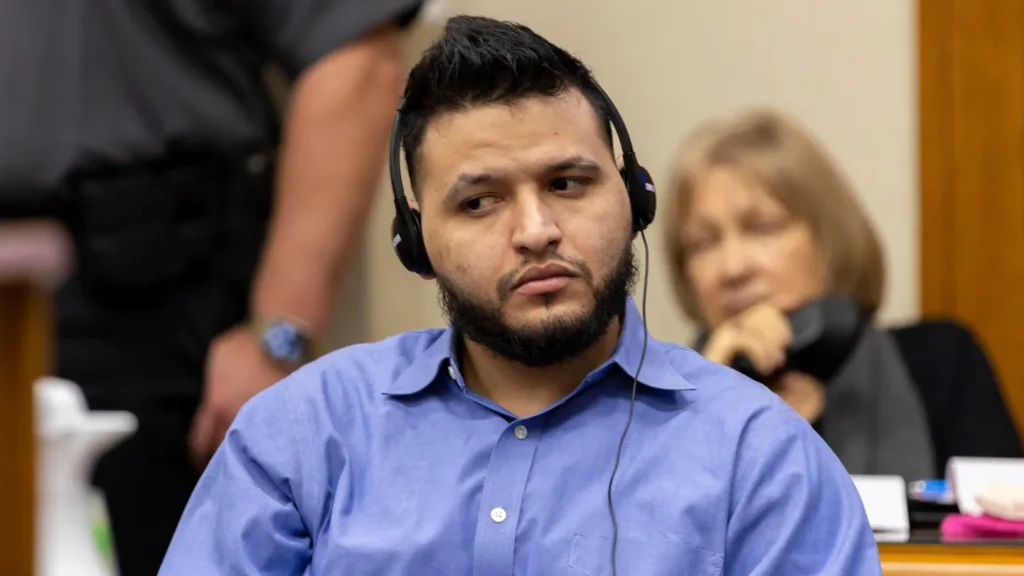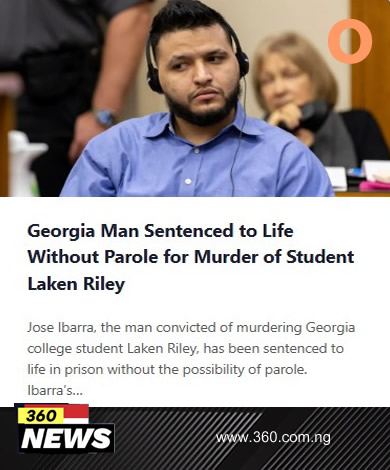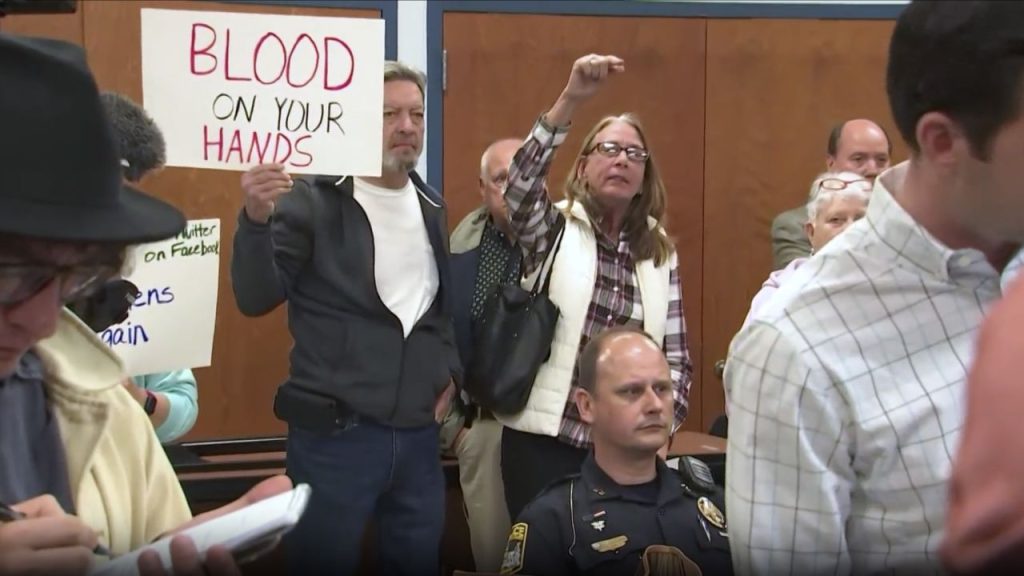Georgia Man Sentenced to Life Without Parole for Murder of Student Laken Riley

Jose Ibarra, the man convicted of murdering Georgia college student Laken Riley, has been sentenced to life in prison without the possibility of parole.
Ibarra’s crime, which shocked the local community, involved the brutal killing of a 19-year-old student in 2023. His sentencing marks the conclusion of a case that has garnered widespread attention due to its tragic nature and the impact it had on Riley’s family and the Georgia community.
Jose Ibarra has been sentenced to life in prison without the possibility of parole after being convicted of the murder of 19-year-old Georgia college student, Laken Riley.
The sentencing, delivered earlier this week, marks the end of a harrowing chapter for Riley’s family, who have spent the last year grappling with the tragic loss of their loved one.
Riley, a sophomore at the University of Georgia, was found dead in a wooded area near the city of Athens in March 2023, setting off an intense investigation.
Authorities quickly linked Ibarra to the crime, and his arrest shocked the local community. The 20-year-old was found guilty of killing Riley after a violent confrontation that ended in her death.
Details of the Crime
According to prosecutors, Ibarra murdered Riley following an altercation that escalated during a meeting they had arranged.
The circumstances leading up to the crime are still being pieced together, but authorities suggest that the two had a brief encounter before the situation turned deadly. Ibarra reportedly attacked Riley, leading to a fatal assault that left her body discarded in a secluded area.
Ibarra was arrested shortly after Riley’s body was discovered, and evidence at the scene linked him to the crime. During the trial, it was revealed that Ibarra had attempted to conceal his actions, but forensic evidence and testimony from witnesses ultimately sealed his conviction.
Impact on Laken Riley’s Family and Community
The murder of Laken Riley, a bright and promising college student, sent shockwaves through the University of Georgia community and the local Athens area.
Riley, who had been studying to pursue a career in health sciences, was remembered by friends and family as a compassionate and driven young woman with a bright future ahead of her.
Her family, who described her as a vibrant and caring individual, has been vocal about their grief, speaking out in public forums about the profound impact her loss has had on them.
Throughout the trial, they expressed their hope for justice and shared their desire for the community to remember Riley’s life, not just the tragedy of her death.
In a statement following the sentencing, Riley’s parents thanked law enforcement and the legal system for bringing closure to their daughter’s case.
They also highlighted the importance of speaking out against violence, urging others to prevent similar tragedies from occurring in the future.
The Case and Sentencing
Ibarra’s conviction for first-degree murder followed a trial that drew significant attention, both locally and nationally.
His actions, including the brutal nature of the crime, were central to the prosecution’s case. Ibarra, who had pleaded not guilty during the trial, was found guilty after a jury deliberated on the evidence presented.
The judge, who handed down the sentence, emphasized the severity of the crime, noting that Ibarra’s actions were calculated and involved a complete disregard for human life.
Ibarra was given a life sentence without the possibility of parole, meaning he will spend the rest of his life in prison for the murder.
A Community in Mourning
Laken Riley’s death has left a lasting impact on the University of Georgia, where students, faculty, and staff have expressed their grief over the loss. Memorials, vigils, and tributes have been held in Riley’s honor, and her peers have rallied together to support her family during this difficult time.
In addition to her family’s grief, the case has sparked discussions around campus safety and the need for more awareness about preventing violence in university communities.
Many students and residents have voiced concerns about the safety of women in particular, urging stronger measures to ensure the protection of young people on and off campus.
As Ibarra begins his life sentence, the community continues to process the trauma left behind by Laken Riley’s death. While the legal system has provided justice, for many, the pain of losing such a promising young life will not fade quickly.
Riley’s family is now focused on honoring her memory, channeling their grief into efforts to raise awareness about violence prevention.
The case of Laken Riley serves as a somber reminder of the fragility of life and the importance of safeguarding vulnerable individuals.
For the University of Georgia community and beyond, it will stand as a stark reminder of the devastating consequences of violence and the need for collective action to prevent such tragedies in the future.
Picture News







